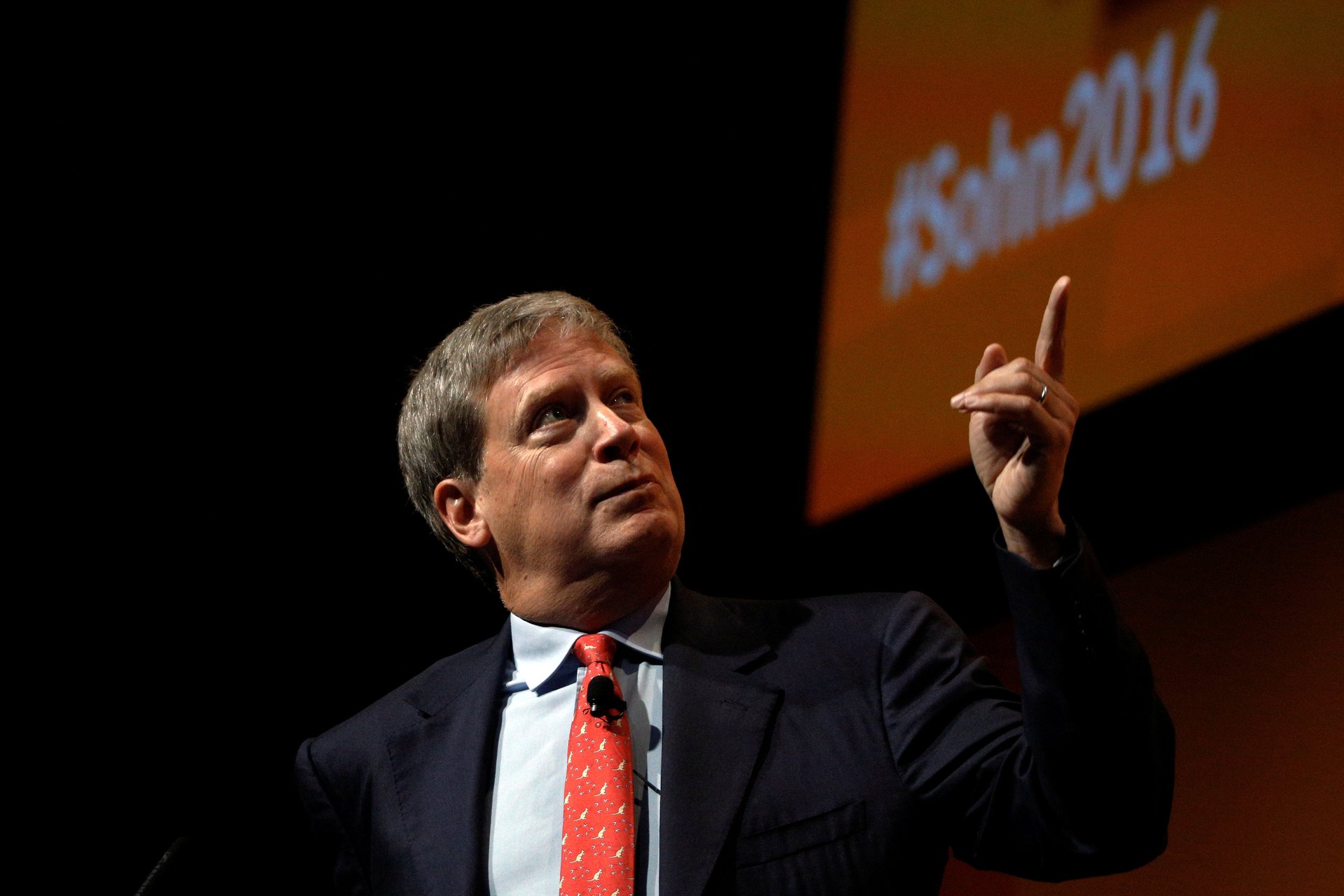Why are billionaires so convinced the US economy will break?
Stanley Druckenmiller is "really nervous" about the economy and believes a recession is imminent

With mixed signals from the US economy, the Federal Reserve is in wait-and-see mode. But America’s billionaires are decidedly more panicked. Do they know something the rest of us don’t?
Suggested Reading
The latest billionaire to sound a warning is Duquesne Family Office founder Stanley Druckenmiller, who believes something will break the economy and that a recession is imminent.
Related Content
He told investors at the 2023 Sohn Investment Conference on Oct. 31 that slowing retail sales and the turmoil of US regional banks are some of the driving forces behind his stance. He said he’s watching for unemployment rising above 5% (it notched higher to 3.9% in October from 3.8% in September), corporate profits dropping 20%, and more bankruptcies, which he said would be evidence of a so-called hard landing.
“I am not predicting something worse than 2008,” Druckenmiller said. Yet, to be a good risk manager, “it’s just naive not to be open-minded to something really, really bad happening.”
DoubleLine Capital founder Jeffrey Gundlach has been telling investors to “buckle up” for a recession, and that the Fed’s higher-for-longer interest rates means “we have a massive interest expense problem” that he believes will trigger “the next financial crisis,” an outlook Bridgewater Associates founder Ray Dalio echoed, citing widening government deficits nearing $1.7 trillion. And JPMorgan Chase CEO Jamie Dimon said last week in Riyadh that “this may be the most dangerous time the world has seen in decades.”
Meanwhile, markets are taking Wednesday’s Federal Reserve rate hold decision and notes of “economic resilience” as a hint that the Federal Reserve is done with raising rates. The Dow Jones Industrial Index leaped more than 550 points yesterday (Nov. 2), marking the steepest one-day gains since June, while 10-year Treasury yields are falling under 4.7%.
Jobs data points to a potential boost in the labor supply that can ease the tight employment environment—a signal that the Fed’s efforts to cool the economy and lower inflation may be working. In October, the US economy added 150,000 jobs, a stark contrast to September’s 297,000 downward revised jobs number. The lower number is due primarily to strike activity in manufacturing, the US Bureau of Labor Statistics (BLS) noted. But unemployment remained below 4% for the 21st consecutive month.
US labor productivity growth, measuring the hourly output of a country’s economy, soared 4.7% in the third quarter—the highest since the third quarter of 2020, according to BLS. Theories suggest there was a surge of hiring in 2021 and 2022 and that workers in new jobs just needed time to be trained.
So why the billionaire negativity?
Yet the billionaire crowd’s negativity persists, which makes one ponder if there is something they know that other investors don’t. Cyrus Amini, chief investment officer at Helium Advisors, isn’t buying it.
“Any billionaires that are getting vocal about the potential for the economy ‘breaking’ are either too late to the party or talking their book,” he said. “What they’re really trying to say is ‘please don’t break our business models.’”
Amini noted that valuations of their companies rose dramatically in the low-rate interest rate environment that followed the global financial crisis.
“The Fed raising rates from historic lows combined with quantitative tightening creates more uncertainty because we’re constantly navigating a barrage of negative and positive data while liquidity drains out of the market,” he said.
“T-Bill and chill”
It is worth noting that Druckenmiller revealed earlier this week that he bought “massive leveraged positions” in short-term notes, while Gundlach told CNBC investors should “T-Bill and chill—you can buy the six-month T-bill and get 5.5%. The rate is no longer going higher, it’s now starting to potentially decline, so I don’t think you want to be in cash.”